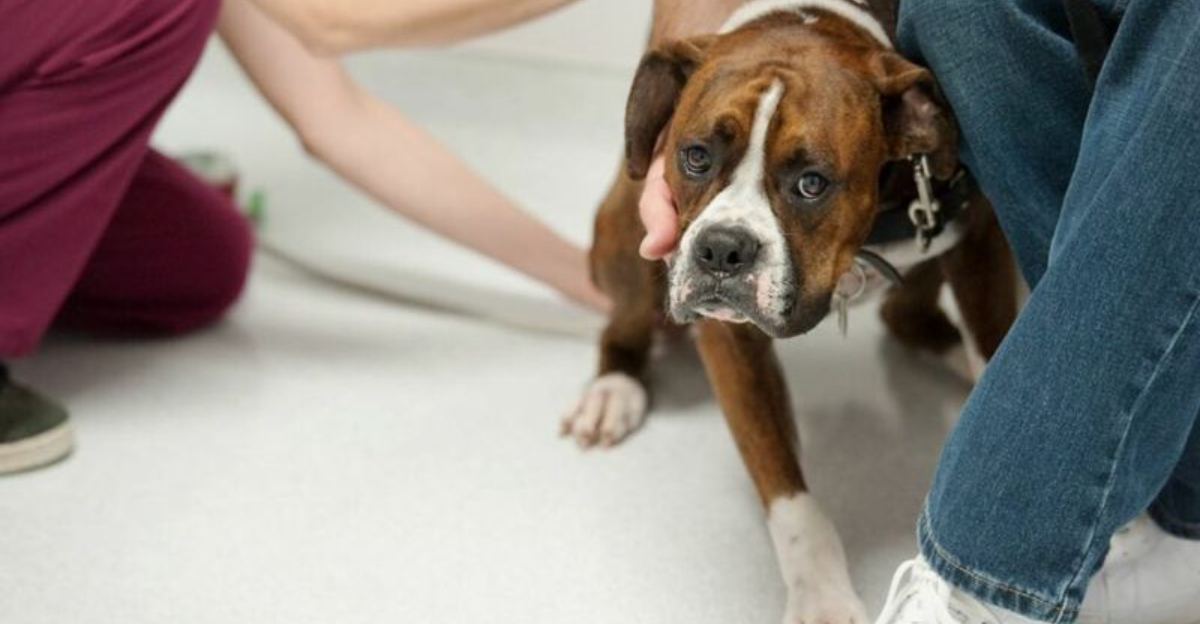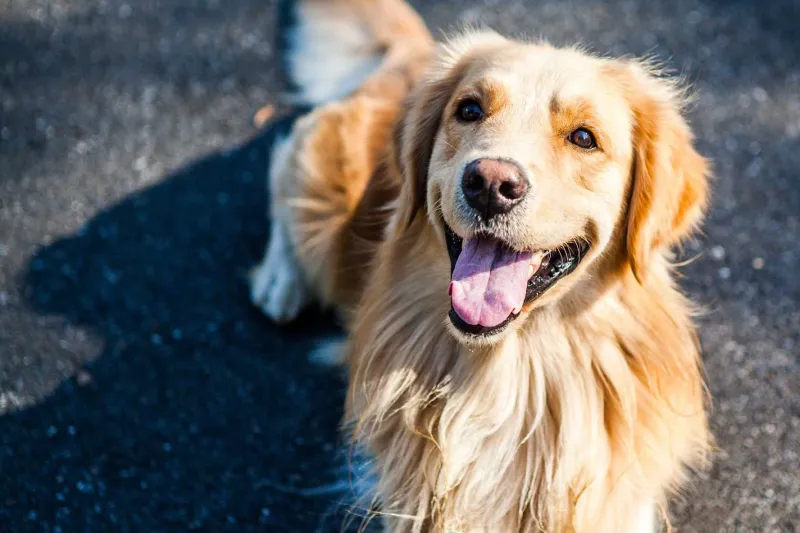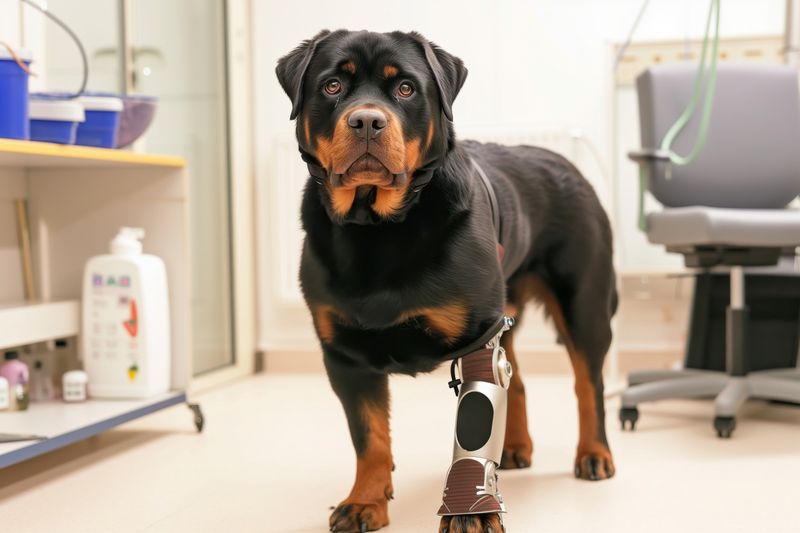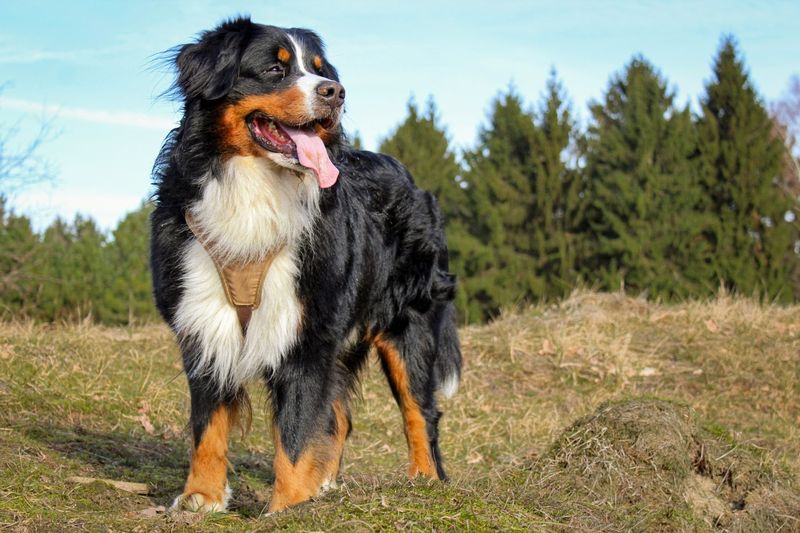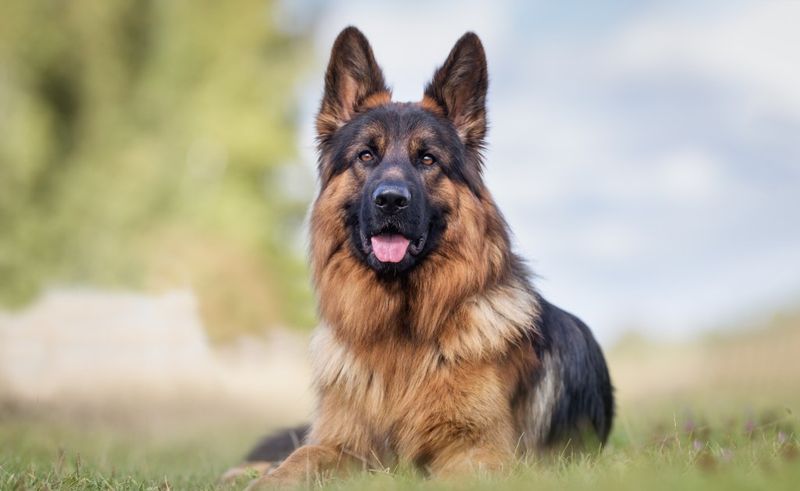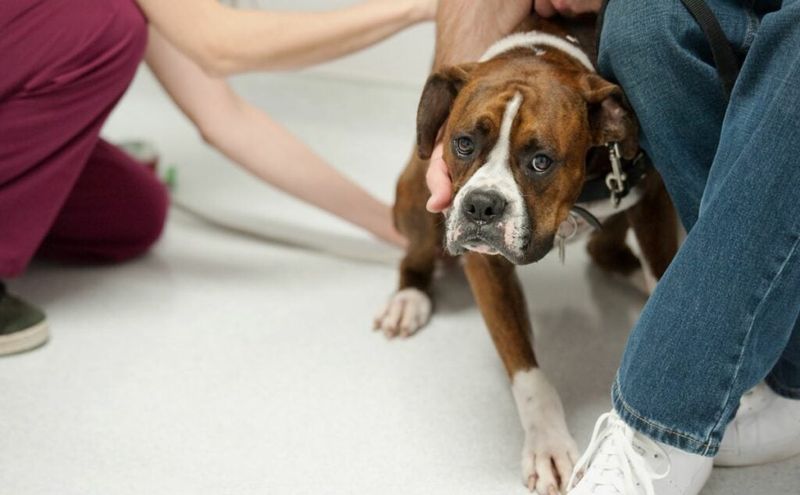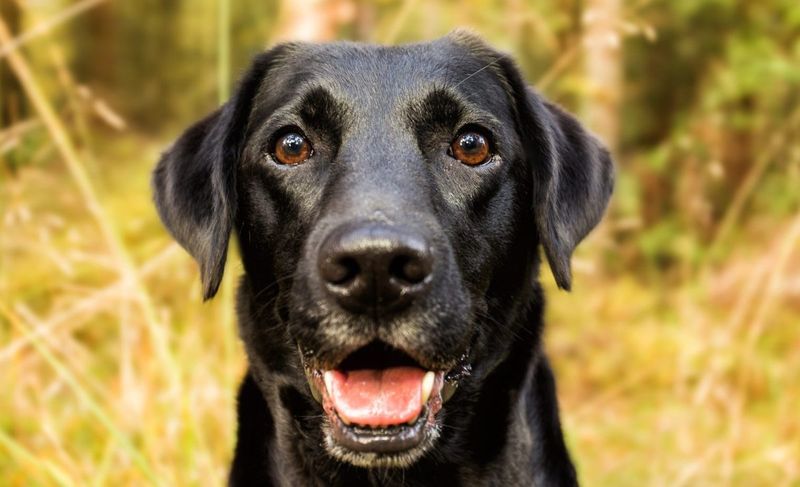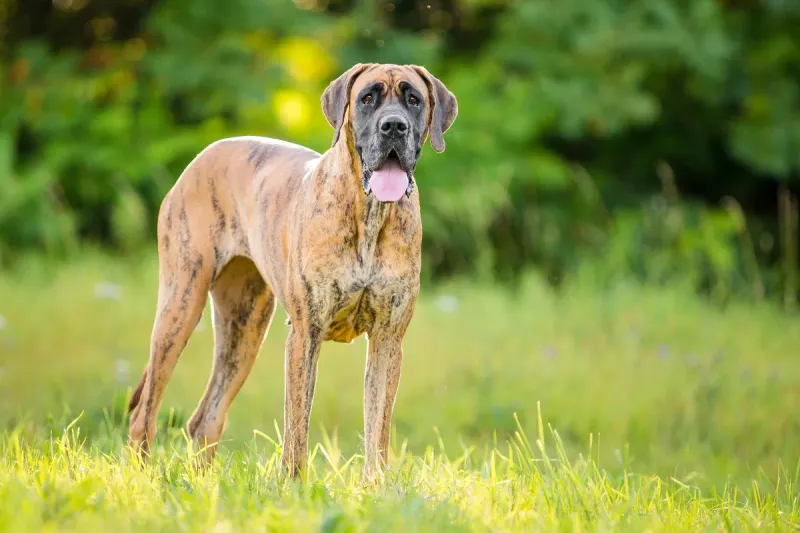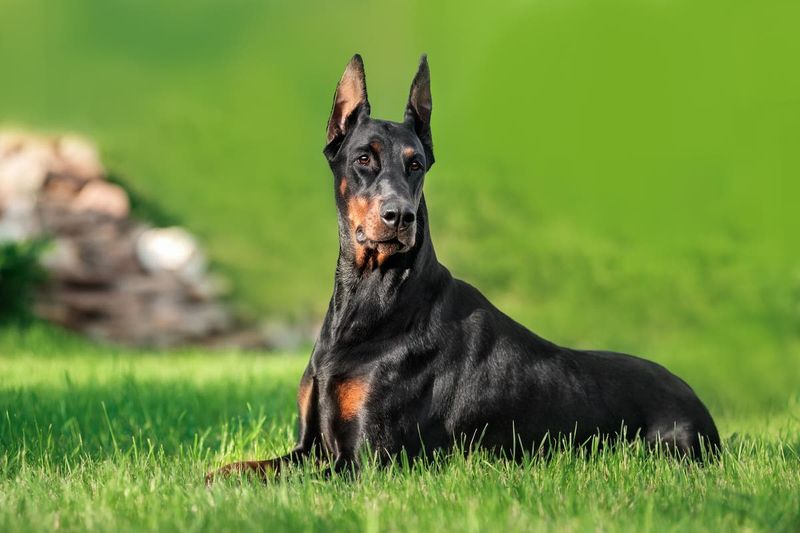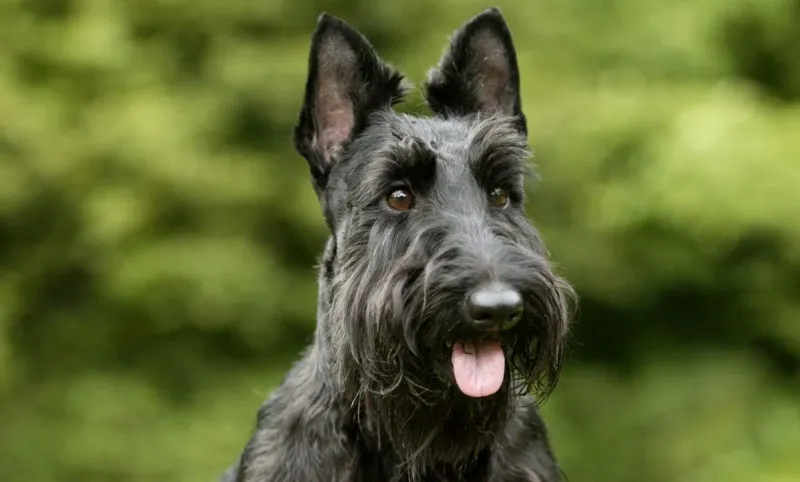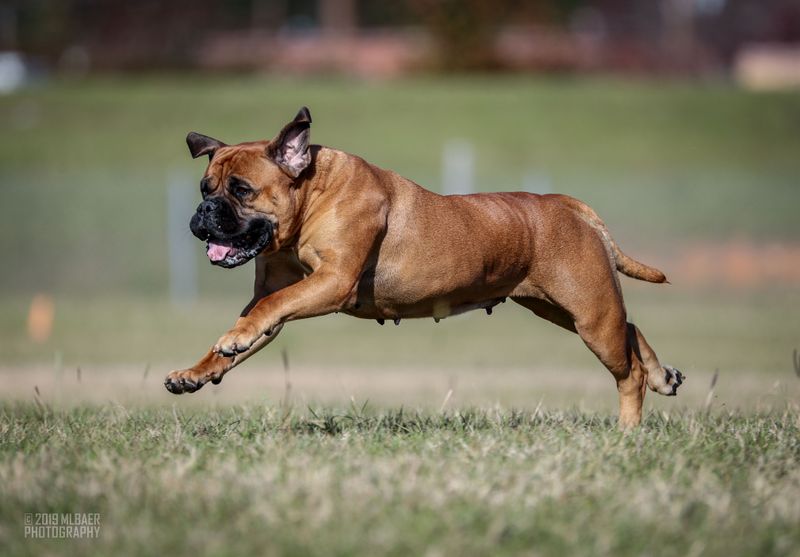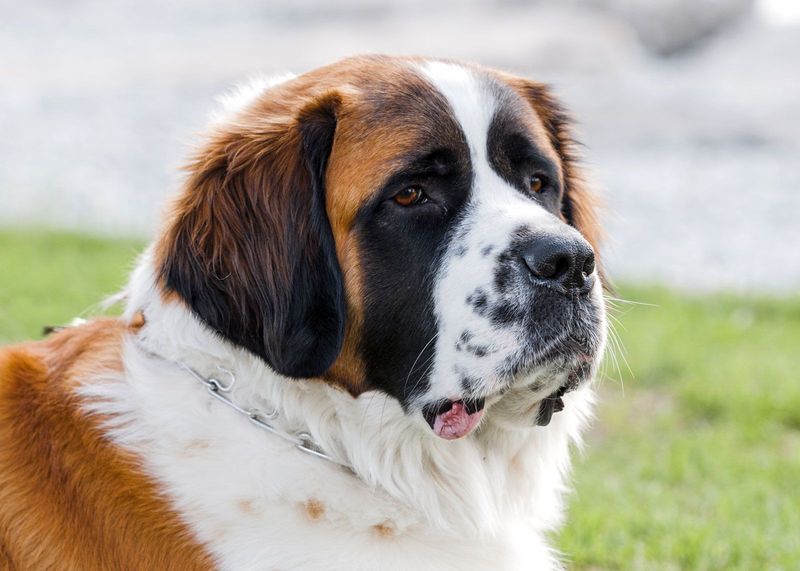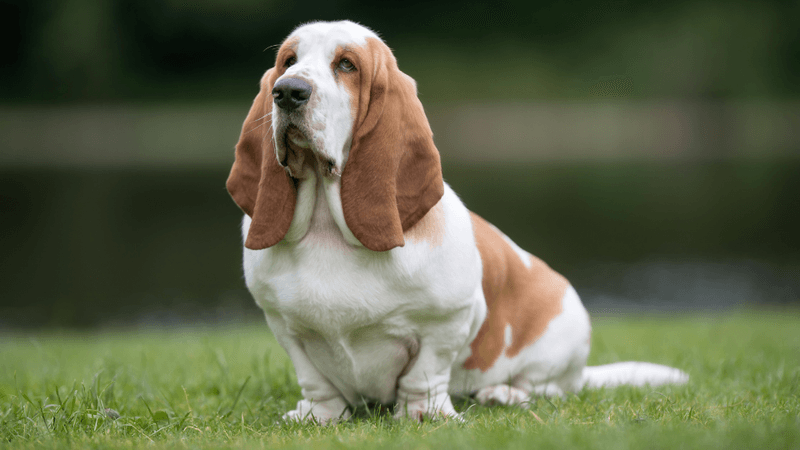Cancer in dogs is a serious concern for pet owners. While any dog can develop cancer, certain breeds are more susceptible. This guide highlights 14 breeds known for their higher cancer risk, offering insights on how to help and support these beloved companions.
Golden Retriever
Golden Retrievers are cherished for their friendly nature and intelligence. With their golden coats gleaming in the sun, they often capture hearts instantly. However, these lovable canines face a higher incidence of cancer than many breeds. Owners can support their health with regular vet check-ups and a balanced diet. Playing fetch with a Golden Retriever not only ensures their happiness but also provides essential exercise. Did you know? Golden Retrievers were originally bred for hunting in the Scottish Highlands, making them adept swimmers and retrievers.
Rottweiler
Rottweilers possess a commanding presence and a loyal heart. They are often seen as protectors. Despite their robust appearance, Rottweilers are prone to cancer, which can be distressing for owners. Ensuring a high-quality diet and regular vet visits can help in early detection and prevention. Rottweilers, with their deep, soulful eyes, not only guard homes but also love deeply. Historically, they were used to herd livestock and pull carts, showcasing their strength and versatility.
Bernese Mountain Dog
Bernese Mountain Dogs are gentle giants with magnificent tri-colored coats. These alpine dogs, unfortunately, face a higher risk of cancer which often affects their lifespan. Owners can help by providing regular veterinary care and monitoring for any unusual symptoms. The Bernese’s calm and affectionate nature makes them wonderful family companions. Did you know? These dogs were originally bred in Switzerland to help with farm work, pulling carts and herding cattle in the mountainous region.
German Shepherd
German Shepherds are admired for their intelligence and versatility. Widely used in police and military roles, they are also beloved family pets. However, they are not immune to cancer. Early detection through regular vet visits and maintaining a healthy lifestyle is crucial. German Shepherds’ loyalty and courage are unmatched, and ensuring their health means they can continue to serve and protect. A fascinating tidbit: German Shepherds originated in Germany in the late 19th century, initially bred for herding sheep.
Boxer
Boxers are known for their boundless energy and affectionate personality. This breed, with its distinctive appearance, unfortunately, has a higher propensity for developing certain types of cancer. Owners can mitigate some risks by maintaining an active lifestyle for their Boxers and ensuring regular health screenings. Boxers’ playful antics bring joy to many families, and being proactive about their health can prolong these joyful moments. A fun fact: Boxers get their name from the way they use their front paws in play, reminiscent of a human boxer.
Labrador Retriever
Labrador Retrievers, with their lovable nature and enthusiasm, are among the most popular dog breeds. Sadly, they are also prone to cancer, which can impact their lively lives. Owners can support their Labradors by ensuring regular exercise, a nutritious diet, and timely vet check-ups. Labradors’ zest for life is contagious, and a little vigilance on health matters goes a long way in preserving their vigor. Fun fact: Despite the name, Labradors originated in Newfoundland, not Labrador, as their name might suggest.
Great Dane
Great Danes, with their towering stature and gentle hearts, are well-loved gentle giants. Unfortunately, they have a higher likelihood of developing cancer, which can overshadow their otherwise magnificent lives. Providing them with regular health checks and proper nutrition can aid in early detection and prevention. Their calm and friendly nature makes them excellent companions, particularly for families. A quirky fact: Great Danes are actually of German origin, not Danish, as their name might imply.
Cocker Spaniel
Cocker Spaniels are adored for their sweet demeanor and expressive eyes. These charming dogs, however, are susceptible to cancer, making regular vet visits essential. By maintaining a good diet and watching for any health changes, owners can better protect their Cocker Spaniels. Their endearing personalities and wagging tails bring happiness to many households. A historical note: Cocker Spaniels were initially bred in the UK for hunting woodcocks, which is where their name originates.
Doberman Pinscher
Doberman Pinschers are known for their sleek appearance and sharp intelligence. They often serve as loyal protectors. Sadly, they also face a risk of cancer, which can be mitigated with early detection and proper care. Regular vet check-ups and a healthy lifestyle can enhance their wellbeing. Their watchful presence is both reassuring and impressive. Dobermans were originally bred by a tax collector in Germany in the 19th century to protect him on his rounds.
Scottish Terrier
Scottish Terriers, with their distinctive beards and spirited personalities, are charming companions. Unfortunately, they are predisposed to cancer, making awareness and regular health checks vital. Owners can help by ensuring a balanced diet and being vigilant about any changes in health. Their independent nature and loyalty make them beloved pets. A quirky bit of history: Scottish Terriers, often called ‘Scotties,’ were originally bred for hunting foxes and badgers in the rugged Scottish Highlands.
Beagle
Beagles are celebrated for their curious noses and playful nature. But behind those cheerful eyes lies a susceptibility to cancer, which can affect their joyful existence. Responsible ownership involves regular veterinary visits and a keen eye for health changes. Beagles’ love for adventure makes them delightful companions, and proactive health care extends their exploration days. Fun fact: Beagles were popularized in literature as Snoopy from the “Peanuts” comic strip.
Bullmastiff
Bullmastiffs, with their imposing size and gentle souls, are steady and reliable companions. Sadly, they are susceptible to cancer, necessitating vigilant health care and regular vet visits. A nutritious diet and exercise can aid in prevention and early detection. Their protective nature and calm disposition make them wonderful family pets. A bit of history: Bullmastiffs were originally bred in England to guard estates from poachers, known for their ability to pin intruders without mauling them.
Saint Bernard
Saint Bernards, famed for their rescue work in the Alps, are gentle giants with a predisposition to cancer. Regular veterinary care and attention to diet are crucial to their health. Owners should watch for any unusual symptoms to catch issues early. Their friendly and patient nature makes them excellent with families. Did you know? The Saint Bernard breed originated in Switzerland, named after the hospice monks who bred them for rescue missions in the treacherous mountain passes.
Basset Hound
Basset Hounds, with their long ears and droopy eyes, are endearingly unique. Despite their laid-back demeanor, they are at risk for cancer, highlighting the importance of regular vet visits. Owners can support their Basset Hounds by providing a balanced diet and monitoring health changes. Their affectionate nature and distinctive appearance make them standout companions. An interesting tidbit: Basset Hounds were originally bred in France for hunting small game, relying on their exceptional sense of smell.
